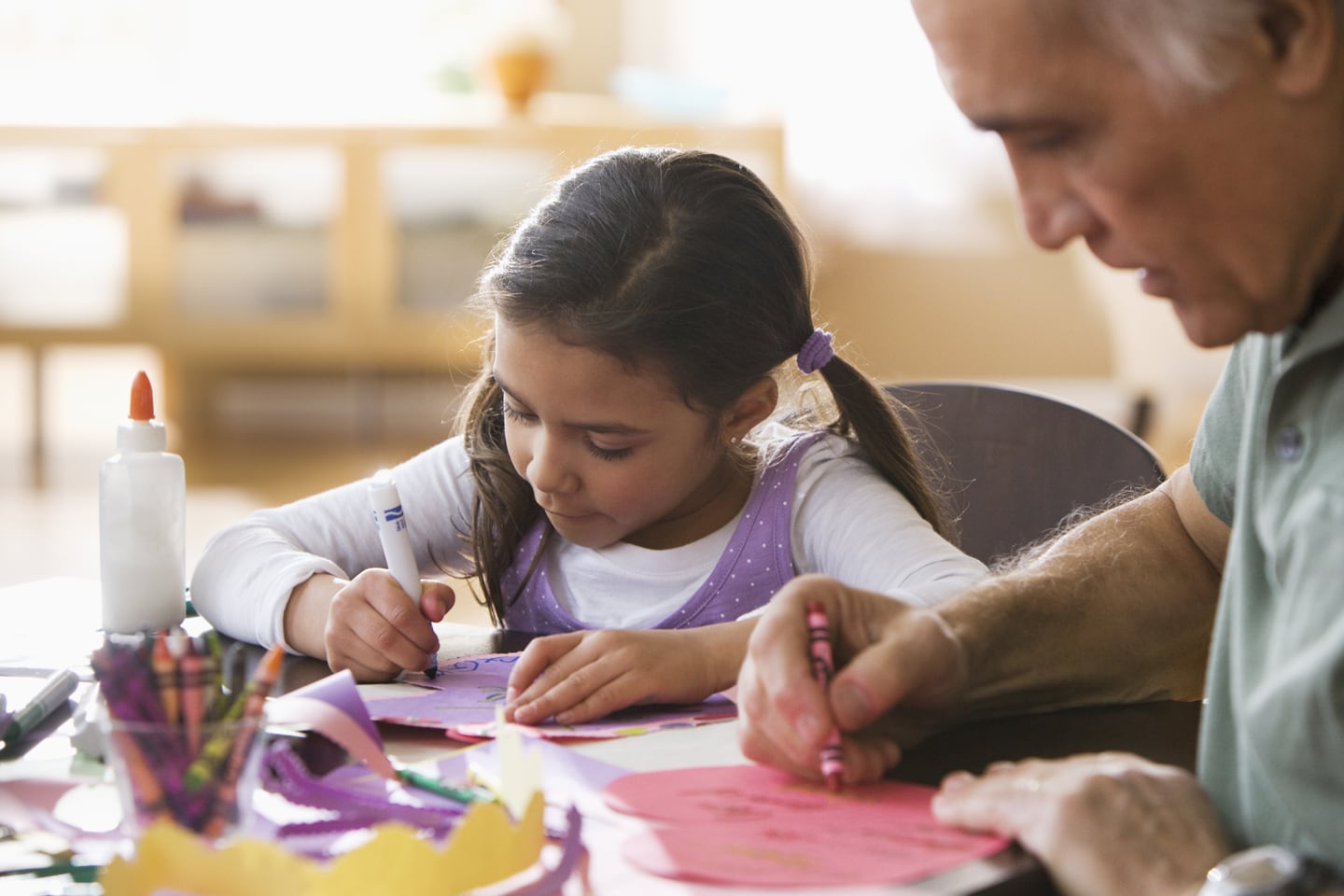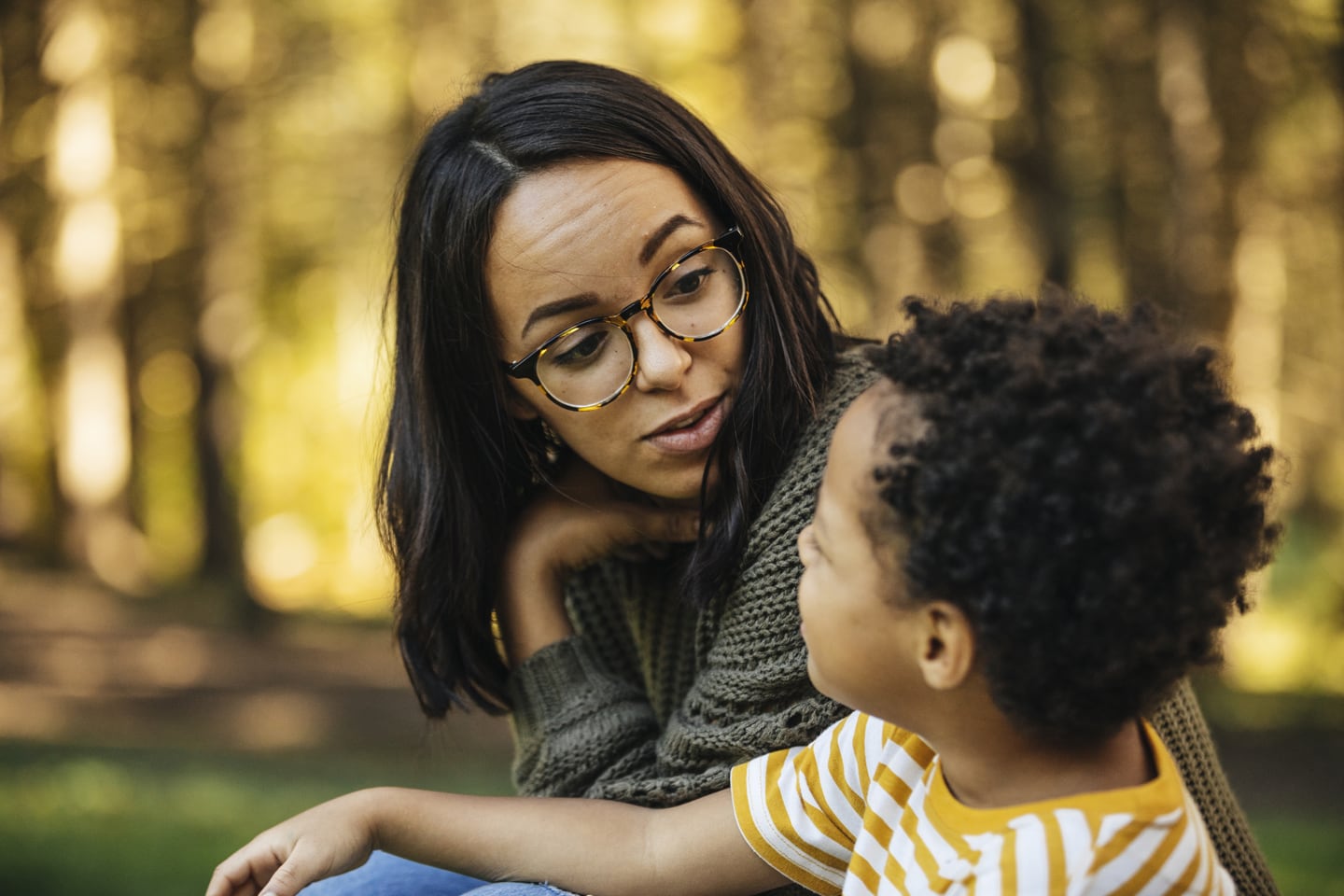01. Understanding Grief
Understanding Grief
We can learn to understand, process, and cope with grief.

Getting to Know Grief
Redefining grief as an experience, rather than something to “fix,” can help us better meet the challenges to come.

Acknowledge that grief endures.
Acknowledge that grief endures.

“Often people will ask, ‘When will I be done feeling this way?’ And I tend to respond with a smile and say, ’When you stop loving,’ which doesn't happen...so much of grief is love, and love is grief.“

Talking About Death and Grief with Children
Grieving is hard. Here are some ideas that may help you process and talk about grief with young children. Talk about death openly, honestly, and in an age-appropriate way.
In grief, we will have all kinds of questions. Those questions will change as we grow and go through life’s milestones. Very young children will need help understanding the permanency of death.Use concrete language: When a person dies, their body stops working and they can no longer be with us. As children get older, they may be curious about different aspects of death, such as how the person died. You might first ask what they know or understand, and then help to fill in the gaps with simple language and short answers. And as you encounter your own curiosity about death or how your loss affects you, don’t be afraid. It’s okay to ask questions, and it’s okay to not have all the answers.
Find words and positive ways to express your feelings.
You and your children will have all kinds of feelings as you grieve, and all of your feelings are okay. You might feel sad, angry, confused, or even happy sometimes, too. Feelings come and go and sometimes they can happen all at the same time. Sometimes our bodies can show us that we’re having a big feeling. You might say, “I notice your body is very tight, your fists are clenched, and you don’t seem to want hugs. You might be feeling frustrated.”

Let your children see you work through your own big feelings. Often, a child thrives as well as their caregiver does. When they see you coping with your own big feelings in healthy ways, they’re more likely to follow your lead.
Provide reassurance and comfort.
You know that grieving can be scary and confusing, and sometimes it helps to have someone simply be with you in your grief—not trying to “fix” it. Sometimes children need that type of comfort from you, too. Young children look to the grown-ups in their lives for safety, security, and affection. Your presence matters. Your time, attention, and simply being who you are with them, shows them they’re not alone.
They don’t have to have it all figured out, and neither do you. You are exactly who your children need.

Listen
What Helps Us Process Our Grief
These strategies can foster a sense of togetherness in grief and help everyone feel valued and cared for.

Remember, you don’t have to grieve alone.

Acknowledge feelings of grief when they come up.

Observe children’s play and join in to connect with them.

Use clear language.

Explore options for support, such as grief camp or counseling.

Give yourself grace.

Talking about Grief
“If I had to use a time machine to tell my six-year-old self about what was going to happen, I would tell him that it wasn't your fault ...and it will never be your fault.”
Pause & Practice
Acknowledging Our Grief
Feelings of grief can happen anywhere, anytime. When grief threatens to overwhelm us, acknowledging our feelings and regulating our bodies can help restore a sense of stability.

Practice being present with yourself and your grief.
Practice being present with yourself and your grief.
Reflect
Breathe Deeply
Deep breathing can help us calm our bodies, settle our thoughts, and reconnect with who we are. Breathe slowly and deeply, in through your nose and out through your mouth.

Explore the Seasons of Grief

Winter
Understanding Grief
See more

Spring
Coping with Change
See more

Summer
Connecting with Ourselves
See more

Fall
Growing as We Grieve
See more

